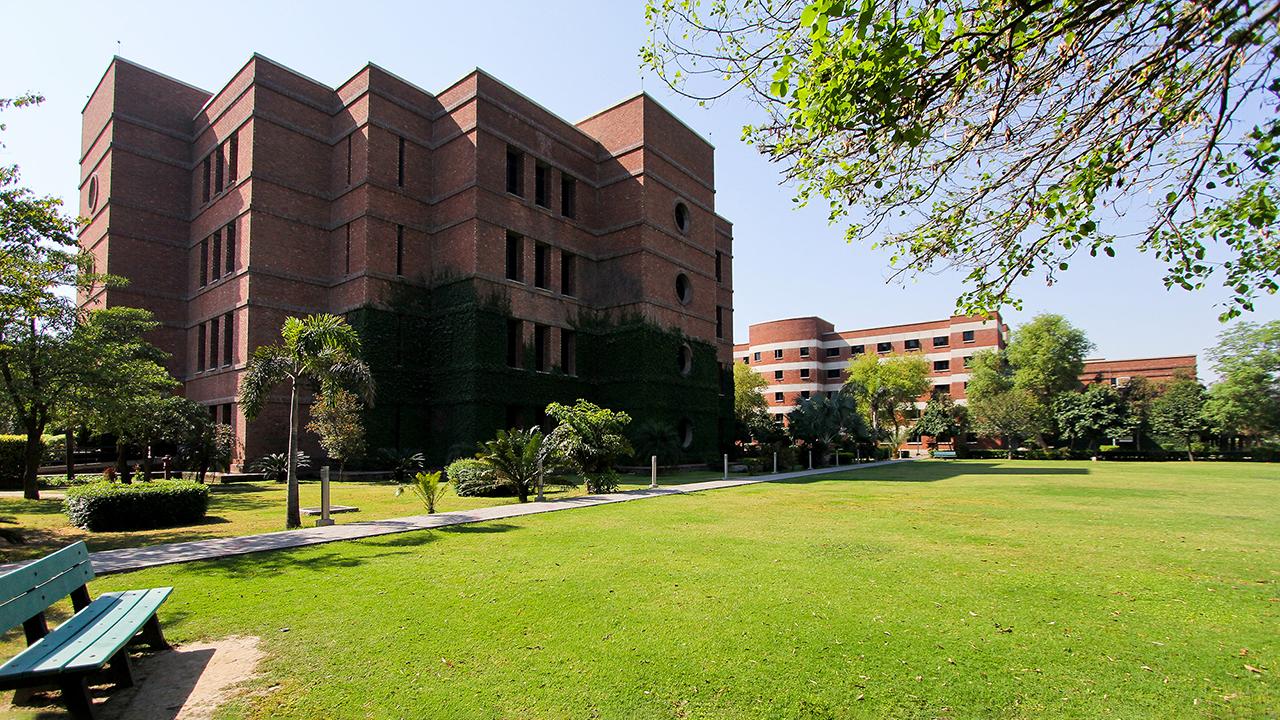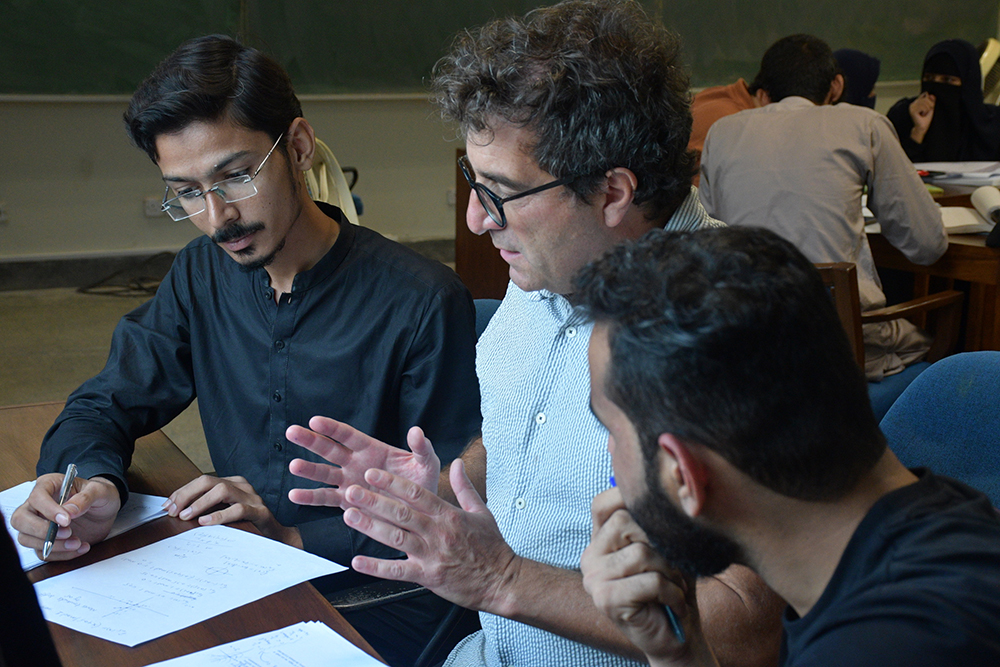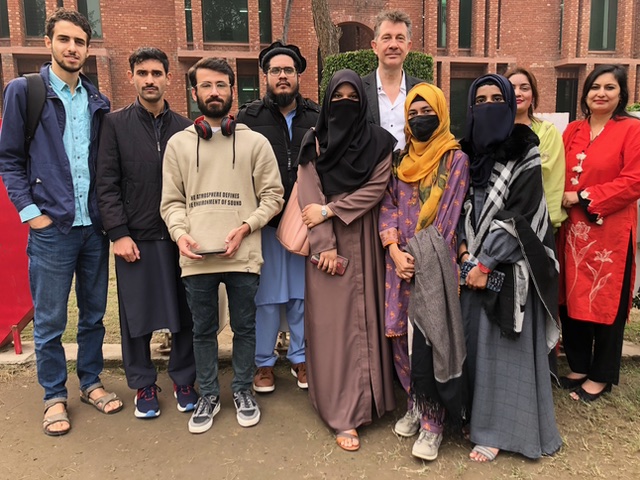
Training new generations of researchers is critical to ICTP’s mission to foster scientific development and capacity building in low- and middle-income countries. Among the most recent initiatives through which the Centre is trying to achieve this goal is the International Mathematics Master (IMM) programme, launched in 2019 at COMSATS University Islamabad (CUI) in Lahore, Pakistan.
The IMM consists of a two-year master in fundamental mathematics taught by prestigious faculty coming from some of the most advanced universities and research institutes worldwide. Its main goal is to train promising postgraduate mathematics students in developing countries and provide them with the knowledge and skills required to access competitive international master’s and PhD programmes.
In the long-term, the IMM aims to establish a critical mass of local researchers working at an international level
-- Stefano Luzzatto
“In the long-term, the IMM aims to establish a critical mass of local researchers working at an international level, who can form a self-sustaining research community and train other researchers,” explains Stefano Luzzatto, a mathematician and a research scientist at ICTP, who is among the founders of the programme.
The IMM has been very successful so far: three classes of students have graduated since the Programme was launched and of the 18 students that successfully completed the master’s in 2021, 2022, and 2023, 16 have been accepted for fully funded postgraduate programmes in Europe and the US.

Several factors act together in making this programme successful and the host institution is key as it plays a major role in providing the environment, the facilities and the infrastructures that are essential ingredients of any high-quality training. Although the host institution also receives some support from ICTP as part of its affiliated centres programme, it needs to be able to provide the funding to cover costs for all the students in the programme, which helps attract young mathematicians from different economical backgrounds.
After a very positive four-year partnership with CUI, the IMM programme recently moved to the Lahore University of Management Sciences (LUMS) in September 2023.
“Partnering with one of the most prestigious universities in Pakistan will attract more applicants and thus help us move a step closer to our ambitious plan to make the IMM an internationally competitive master’s programme,” Luzzatto comments.
Another key winning factor of the master’s is the high scientific calibre of the lecturers who teach in the programme. The members of this international faculty come from some prominent research institutions (Imperial College London, Ecole Polytechnique, University of Amsterdam, Scuola Normale di Pisa, Sapienza University of Rome, just to name a few) and can provide the kind of world-class education needed to guide students towards the best PhD programmes worldwide.
Peter Stevenhagen, a mathematician at Leiden University, in the Netherlands, has recently joined the IMM faculty and will be in charge of the algebra course for first-year students. Last November he spent about 20 days in Lahore to give some of the lectures in the course, a task that he shares with two other members of the international faculty.
The IMM students are very highly motivated and for them this degree can really make a difference.
-- Peter Stevenhagen
“I have a long experience of teaching to students from low and middle income countries, which I developed mainly through my collaboration with the Centre International de Mathématiques Pures et Appliquées (CIMPA), in France,” Stevenhagen explains. “The IMM has a quite unique format, since it takes place in a developing country, and it brings in local students as well as international ones. This formula is new to me, but it seems to work very well.”

When asked what was the impact he felt his teaching was having on the students, Stevenhagen replies: “I noticed that the students in the course were used to learning proofs by heart and I think that it was important for them to be exposed to a different style of teaching, in which I tried to stress that the proofs that we were going through during the courses should become part of a toolkit that they will be able to apply to a wide range of problems. In this way I hope they will develop the creative thinking that is needed to find out new things in mathematics or in any other field.”
Stevenhagen adds, “The IMM students are very highly motivated and for them this degree can really make a difference. I hope that IMM will continue to provide motivated students with the skills they need to progress in the type of career they wish for themselves,” he concludes.
Stefano Luzzatto shares similar hopes for IMM: “Although we launched it in Pakistan, the programme aims to grow into a network of interconnected programmes worldwide. Its conception and structure, including its academic programme and teaching philosophy, are general enough to be easily adapted to different countries with different cultures and infrastructures,” Luzzatto concludes.
















